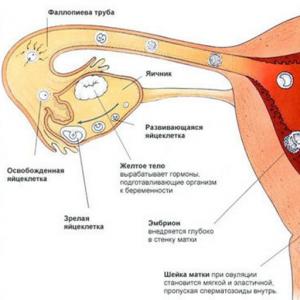Specialty correctional pedagogy. Correctional teacher. Who does a correctional educator work with?
Being a children's teacher is a special profession, vocation and gift. But correctional pedagogy is considered to be the "highest aerobatics" of pedagogy all over the world. There are very few specialists in this field of pedagogy! Graduates of the specialty, even without work experience, are in demand in correctional schools all types, classes of correctional and developmental education. The salary of a primary school teacher in a public school is 25-40 thousand rubles, depending on the teaching load, in a private school - up to 50 thousand.
This is an extremely delicate area of education and upbringing, in which not everyone, even a very good teacher, is capable of becoming a real specialist. These people have been given the right and they are also entrusted with a gigantic responsibility, without injuring the defenseless, fragile and vulnerable children's soul, to teach a "not like everyone else" child to live in our very difficult world.
A primary school teacher should be able to do a lot: listen, speak, sing, dance, draw. But most importantly: he should be interested in children. It must be a man of generous soul and heart. Shota Rustaveli wrote: “What you hid is gone, what you gave away is yours.” The science of giving is a complex science, one comprehends it throughout one's life. Without this, it is impossible to be a teacher, and a teacher of primary classes of compensatory and correctional-developing education for children with psychophysical developmental disorders, all the more so, since these children respond only to sincerity, instantly feel any falsehood.
This specialty is not for everyone, but the specialty is extremely necessary and in demand! The specialty "Correctional Pedagogy in Primary Education" is aimed at helping children with disabilities and impaired intelligence in teaching. It can be both congenital diseases and acquired. Such children study in a certain correctional institution, where correctional teachers work. Here, in addition to basic pedagogical knowledge, you will need individual approach to each student, taking into account all his characteristics. This is work with "special" children who have problems of a physical or mental nature. The tasks of the correctional teacher include: To carry out pedagogical control. Plan the goals and objectives of the lessons, focusing on each child. Evaluate the process and results of activities. Conduct educational diagnostics. Work with parents of children. Choose a program that takes into account the characteristics of the class. Create a subject-developing environment in the office. Write reports for each child.
Graduate qualification: teacher of primary classes and primary classes of compensatory and correctional-developing education. Related professions: teacher, teacher-defectologist, tutor, GPA educator, speech therapist. Spheres of possible employment: state and non-state school departments of general educational organizations, special (correctional) educational organizations, boarding schools, children's health camps, children's clubs, child development centers, social centers.
According to the data of the Federal Statistics Service of the Russian Federation, as of January 1, 2018, 651,000 disabled people under the age of 18 live in Russia, while 4 years ago there were almost 70,000 fewer (582,000). The number of children with disabilities (HIA) who have not received a disability is even greater. So now it's special social significance acquires correctional pedagogy. Our center offers a wide range of retraining and advanced training courses for educators that help children with disabilities adapt to life in modern society. We offer you to get acquainted with the specialty of a correctional teacher closer.
What is the difference between a correctional teacher and an ordinary teacher or educator?
Like any educator, a correctional teacher is engaged in teaching and educating children, but children are “special”, that is, suffering from congenital and acquired health disorders. Accordingly, the educational process is built taking into account the problems of students and is aimed not only at developing certain knowledge and skills in them, but also at correcting physical / mental defects. A correctional teacher works much more on the socialization and adaptation of children in modern society than a teacher who works with healthy students.
The specialist who has chosen this profession will need to work with children who have:
- speech disorders;
- hearing impairment;
- visual impairment;
- problems with intellectual development;
- problems with the musculoskeletal system;
- problems with the emotional-volitional sphere.
Often in children with disabilities there are complex disorders. For example, with cerebral palsy, the musculoskeletal system, speech, vision, and hearing can suffer.
In which educational institutions Remedial educators needed?
First of all, such specialists are required in correctional educational institutions. However, more and more often in general education kindergartens and schools, inclusive education programs are being implemented, in which healthy children and children with disabilities study together. Such educational organizations positions for speech pathologists, speech therapists, tutors, etc.
Persons who have received education in the specialty "Correctional Pedagogy" are in demand in medical institutions (clinics, rehabilitation centers, sanatoriums, etc.), in private development centers and other organizations.
Can a correctional educator run a private practice?
 The spread of inclusive education makes tutors in demand, who can work as a correctional teacher. They provide individual support for children with disabilities in the process of obtaining preschool and school education.
The spread of inclusive education makes tutors in demand, who can work as a correctional teacher. They provide individual support for children with disabilities in the process of obtaining preschool and school education.
Consultations and individual lessons with correctional teachers outside the main educational process are in demand. For example, parents can refer their child to a speech therapist for personal sound production classes, articulatory gymnastics, speech massage, etc.
Is it necessary to get a second higher education to become a remedial educator?
It will take several years to get an education in the field of correctional pedagogy at a university. But those who already have a higher or secondary vocational education have the opportunity to save time and money - to undergo professional retraining. It takes an average of 1-1.5 years (or even less - for example, only 256 hours when studying at our Center as a typhoid teacher) and costs several times less than a second higher education. At the same time, with a diploma from a licensed center for additional education on retraining, you will be hired by both private and public organizations.
Can everyone enroll in retraining courses for correctional teachers?
The main requirement for admission to the courses is the presence / receipt of a higher or secondary vocational education. You just represent admission committee a diploma of a university or a college, make a payment and start classes in the chosen program in the field of correctional pedagogy.
Some programs have special requirements for the basic training profile. For example, you need to have a university degree in a pedagogical or psychological specialty. But if you don't have necessary education, you can undergo retraining in pedagogy, defectology, psychology in the amount of 500 hours, and after that enroll in courses for correctional teachers.
Currently, the number of children with developmental disabilities is steadily increasing. If you do not notice the problem, or think that everything will even out over time, then the situation will only get worse. If you turn to a specialist in time, then by school the child will master the skills necessary for learning.
These are children with mental retardation and speech development, with intellectual disability, with attention deficit disorder, etc. Such categories of children need a special approach to education, behavior correction, and education.
A correctional teacher is a specialist who works with children who have special needs in physical and mental development.
The main activities of the teacher-defectologist:
- problem diagnosis;
- correctional and developmental classes, taking into account age, individual and psychological characteristics Your child;
- assistance in raising a child;
- social adaptation.
At the heart of this profession is an understanding of the uniqueness of children with special needs, the desire for their development and socialization. Having special knowledge, a correctional teacher helps parents cope with difficulties in raising and educating children.
Most often, parents detect deviations in the development of the child upon admission to Kindergarten or school. That's when they begin to work hard with a defectologist, speech therapist and psychologist. But, having started corrective work at the age of 6-7, it can be very difficult, sometimes almost impossible, to catch up. After all, it is up to 3-5 years that the compensatory capabilities of the brain are very high. If corrective action is started at an early age, problems can be solved completely, or at least many possible secondary deviations can be avoided.
A specially prepared environment has been organized for classes in our center, a large number of developing materials.
In the classroom, the following correctional and developmental work is carried out:
- increase in cognitive activity and development of basic mental processes in children (perception, attention, memory, thinking and speech);
- learning to play;
- development of speech based on familiarization with the outside world;
- visual activity: modeling, drawing, designing;
- teaching literacy.
Other disciplines can vary and be selected taking into account the individual characteristics of the child.
The teachers work closely with the family. For the youngest children, parents are present at the lessons. This allows them to ask all their questions and track, under the guidance of a specialist, the progress of the child, his progress. In addition, the work of a correctional teacher is aimed at teaching parents the basic techniques necessary for self-study with a child at home. Only in this case it is possible to achieve significant results.
If you have even the slightest doubt about the development of your baby, you need to consult a professional correctional teacher and, of course, a specialist doctor. In our center you can always get answers to all your questions. 
The specialists of our center will help you:
- determine the presence or absence of a problem;
- develop an individual training program for your child;
- get advice on doing homework.
Classes in our center are held at a convenient time for you and your child, in a comfortable, friendly and cozy atmosphere of support and attention.
44.02.05 Correctional pedagogy in primary education
Being a children's teacher is a special profession, vocation and gift. But correctional pedagogy is considered to be the "highest aerobatics" of pedagogy all over the world. This is an extremely delicate area of education and upbringing, in which not everyone, even a very good teacher, is capable of becoming a real specialist. These people have been given the right and they are also entrusted with a gigantic responsibility, without injuring the defenseless, fragile and vulnerable children's soul, to teach a "not like everyone else" child to live in our very difficult world.
Correctional pedagogy is a complex, complex specialty, which, in addition to theoretical information about psychology and teaching methods, relies on serious practical experience in interacting with children who have health problems or deviations in mental development. The work of a correctional teacher consists not only in teaching primary school students a number of general educational information, but also in educating a child's visual perception, increasing communication skills.
A primary school teacher should be able to do a lot: listen, speak, sing, dance, draw. But most importantly: he should be interested in children. It must be a man of generous soul and heart. Shota Rustaveli wrote: “What you hid is gone, what you gave away is yours.” The science of giving is a complex science, one comprehends it throughout one's life. Without this, one cannot be a teacher, and a teacher of primary classes of compensatory and correctional-developing education for children with developmental disabilities, all the more so, since these children respond only to sincerity, they instantly feel falsehood.
Having received this profession, you, along with it, get great happiness to give people a future on a professional basis.
 Qualification: Teacher of primary classes and primary classes of compensatory and correctional-developing education.
Qualification: Teacher of primary classes and primary classes of compensatory and correctional-developing education.
Level of training: advanced
Region professional activity alumni: education and upbringing of children in the process of implementation educational programs general education in primary school and primary classes of compensatory and correctional-developing education.
The objects of professional activity of the graduate in the specialty 44.02.05 Correctional pedagogy in primary education are:
— documentation support of the educational process.

The teacher of primary classes and primary classes of compensatory and correctional-developing education is preparing for the following activities:
1. Teaching under the programs of primary general education in primary grades and primary grades of compensatory and correctional-developing education.
2. Organization extracurricular activities and communication junior schoolchildren in primary grades and primary grades of compensatory and correctional-developing education.
3. Classroom guide.
4. Methodological support of the educational process.
The specialty 44.02.05 Correctional Pedagogy in Primary Education employs highly qualified teachers, most of whom have the highest and first qualification category.
The work of a teacher of primary classes and primary classes of compensatory and correctional-developing education is associated with a number of delicate issues and is often carried out in state educational organizations. Graduates of the specialty, even without work experience, are in demand not only in correctional schools of all kinds, classes of correctional and developmental education, but also in general educational organizations, including kindergartens, boarding schools, orphanages, sanatoriums and dispensaries. In all these organizations, there is a shortage of personnel, modern correctional pedagogy needs qualified personnel who are able to fully engage in both educational and administrative work.
Teachers of this specialization conduct lessons in all disciplines in primary school, organize entertainment events, children's recreation and leisure, conduct circles, maintain all educational documentation and ensure the protection of the life and health of students during their presence in an educational organization.
Many people believe that correctional pedagogy is a pedagogy aimed at correcting children with difficult behavior. People call them "neglected" or children from dysfunctional families. But for a long time, correctional pedagogy in primary education has acquired other directions. But let's see.
What is a remedial teacher?
The specialty "Correctional Pedagogy in Primary Education" is aimed at helping children with disabilities and impaired intelligence in teaching. It can be both congenital diseases and acquired.
Such children study in a certain correctional institution, where correctional teachers work. They weaken or replace developmental deficiencies.
The tasks of a correctional teacher include:
- Carry out pedagogical supervision.
- Plan the goals and objectives of the lessons, focusing on each child.
- Evaluate the process and results of activities.
- Conduct educational diagnostics.
- Work with parents of children.
- Choose a program that takes into account the characteristics of the class.
- Create a subject-developing environment in the office.
- Write reports for each child.

Who does a correctional educator work with?
Answering this question, it is easier to say with whom the correctional teacher does not work. Children with autism, Down syndrome, attention deficit hyperactivity disorder, musculoskeletal disorders, visually impaired and hearing impaired. Therefore, going to study for the specialty "Correctional Pedagogy in Primary Education", people often receive several additional specialties. This profession allows you to constantly be in the process of learning, as there are so many branches of correctional pedagogy.

Where to study?
A correctional teacher is taught in technical schools, colleges and universities. If a specialist already has one, he can take courses to improve his qualifications. When choosing such courses, be guided not by the price, but by the fact that you are taught to study according to the Federal State Educational Standard.
Correctional pedagogy in primary education is not the easiest profession. It requires not only a certain character, but also a sense of calling to the profession. And although teenagers do not think about how their professional life will develop in the future before going to college or university, there are a number of scientific books that can help determine the choice of a profession.
Where to start studying?

In it you can find information:
- On the foundations of pedagogy and its specific area - special (correctional) pedagogy.
- About school maladaptation.
- On educational relations and the organization of correctional and developmental education.
- About pedagogical diagnostics.
- On the main directions of correctional pedagogy.
- On the development and improvement of spatial representations, coordination of movements of the hands and fingers, visual perception.
The book consists of a whole introductory course, which, in addition to the above, tells about everything that a specialist may encounter.
Methods in correctional pedagogy
Correctional pedagogy in primary education is based on several specific methods.
- The method of conversation or the method of collecting psychological and pedagogical data through communication between the teacher and the child. At the same time, much depends on the ability of the teacher to create an emotional and psychological atmosphere suitable for the child. The teacher in the process of conversation not only interprets words, but also non-verbal signs. This method in correctional pedagogy is suitable only for children with developed speech functions.
- This method is divided into several different ways. You can observe the child, being included in the process of his activity, or vice versa, standing aside. You can do it openly or, on the contrary, closed, using the Gisell mirror. Usually the teacher keeps a plan of his observations, writes down feelings and thoughts, and then analyzes the material received. However, there are also disadvantages to this method - each person interprets what he sees according to his own standards.
- Questionnaire method. The most standard and common method. Children in elementary school are not always able to complete the questionnaire, so it is not suitable for every type of institution and not for every child.
- Method of pedagogical experiment. k With this method, personal data, conversations, observations and much more are used. Establishing connections and patterns - the main objective such a method.
- Method and anamnestic information. With this method, a diagnosis is studied and based on his medical history. The study also includes looking at crafts, school notebooks, and more that the child has made.
- Documentation study method. A certain dossier is kept for each and schools. It is on this basis that correctional teachers can, after analyzing, draw conclusions.
These are the simplest and most known ways. However, there are more serious methods, such as PMPK (Psychological-Medical-Pedagogical Council), where absolutely all information received by psychologists, speech therapists, parents, social workers, correctional teachers and doctors is collected and processed. The purpose of this method is to draw up an individual plan for the development of the child.

Some statistics
Despite the demand for the specialty "Correctional Pedagogy in Primary Education", the salary is quite low in the regions of Russia. The situation worsened with the crisis. Based on statistics, wages in Moscow fell from 40 to 30 thousand rubles. But the demand for correctional teachers has not fallen, and there are quite a lot of vacancies. The same demand can be observed in the Leningrad Region and in the Altai Territory.
The highest salaries are in the Moscow region and the Republic of Tatarstan - 32.5 thousand rubles each. Just below Leningrad region with a salary of 30 thousand rubles. And closes the top 5 Astrakhan and Kemerovo regions with wages of 18 and 16 thousand, respectively.
However, when choosing whether to enter a university with a degree in Correctional Pedagogy in Primary Education or not, you should focus not only on salary and demand in your region - more importantly, do you want to devote your life to this!







